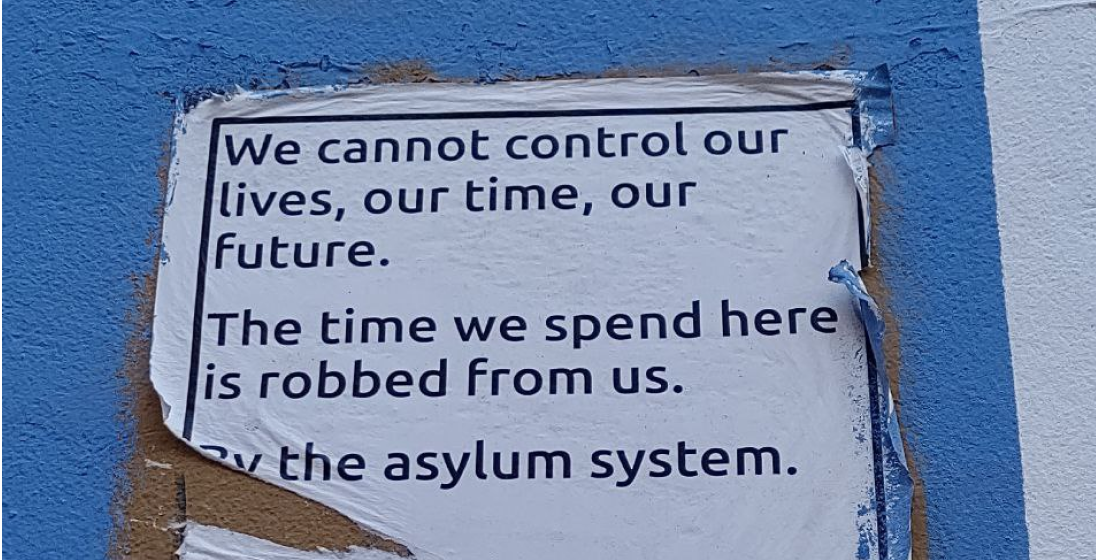A: “I will first start with the age and the effects that age determination has. For example, when you come here, to Bremen, when you are a minor and in the process in which you are not accepted as a minor, you are forced to accept that you are an adult. There are different effects it has on you. The first one is the accommodation. Mostly, if you are a minor, you are not accommodated in the Lager, in the big camps. You are taken into a very good system. And when you compare that to the adult system, you have a better accommodation — not crowded, you mostly have your own flat, you can cook for yourself. But when you are an adult, you are mostly taken to a big camp where you don't have the chance to cook for yourself, where you don't have the chance to have your own space. You know, you live in a big house, with...maybe four, five, seven people in one room. And you cannot cook. You have to eat from the canteens, you don't have the chance to eat the food you want. That is one part of it, the accommodation. And the other part is education. Like, when you are an adult, your chances of education are very limited. Like, you cannot go to a normal school, you cannot go to schools. I don't know exactly but there is an age. When you pass that age, you cannot go to normal schools. People with whom I came here together, who are accepted as minors, in the youth system, they go to school. You know, one or two years, they get their Abschluss and they have their Ausbildung. They are faster than people who are adults. Adults mostly go to Deutschkurs or you go to BIQ (This is also a really important educational project). But also this: you get B1 and you don't have school Abschluss...So, the inequality or the disparity, when you look at education, is very wide. When you are a minor, you get the chance to get an education but when you are an adult, you get very little chance of getting an education. There is one example, someone I know who was given 40 years — that means he was assessed to be 40 years in his age determination. When he tried to register as a minor, he was given 40 years. And he could not go to any school, he could not do anything, because the maximum age for BIQ is 27. If you are more than 27, you cannot go to that school.” Q: “He got 40, they told him he was 40?” A: “Yes. And that is the education part. But, you also look at other parts, you know in sports and other things. When you are an adult and you want to do sports, the chances are really limited. It is different from the system for minors! Really different! And when you are a minor, you know, you get Ausweis, you know, you can move freely, you can go to clubs, you know. Socially also, there is a big difference. When you are an adult and you are not in the system, you have big uncertainty in your life. Also in Bremen, if you are categorized as an adult, you have also the risk of being transferred outside of Bremen. And also when you are transferred, you go for asylum. When you go for asylum, this will take you also to other categories, whether you are qualified to get asylum or not, also the Dublin regulations and other stuff are coming to this. So it is very big and the opportunities are very vast and it is a big difference here.”






